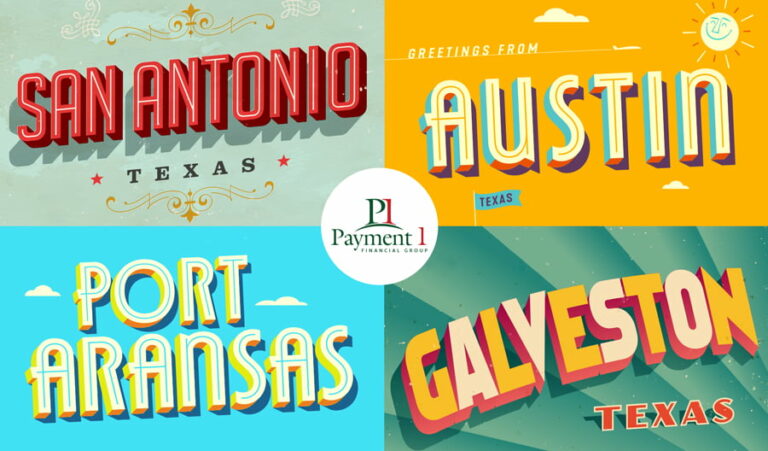Debt Consolidation Loan: The What, Whys and Hows

In September 2021, the Federal Reserve announced that consumer credit increased by 5.6% during the third quarter. So if you’re struggling with debt due to the pandemic and even before it, remember that you’re not alone. A good way to get yourself out of the hole is through a debt consolidation loan.
Debt consolidation loans help you roll multiple debts into a single payment scheme. With such a process, you can save money by preventing your interest from piling on top of each other. Here’s everything you need to know about the entire process and how you can apply for one.
What Is Debt Consolidation?
Let’s start first by defining what debt consolidation is and how it works. Simply put, consolidation loans are loan requests that take out a brand new loan, paying off any existing debts and taking them as a single debt. These can include everything from personal loans, car title loans, and even student loans.
If several types of debt encumber you, you’re likely paying interest for each of these loans. These can be troublesome once they start piling up, hence why debt consolidation is a great way to simplify your entire debt portfolio. It can also save you money in the long run if you do it correctly.
There are several benefits to debt consolidation, especially for those who are looking to streamline their resources. By combining them into a single liability, you make sure that you don’t default on them. You also only pay for a single loan source rather than several loans running on the same clock.
Depending on the amount and the debt structure, you can potentially lower your interest rates with the right credit score. You also get to spread your debt over a much longer time, which lets you have more affordable payments.
Why Get Debt Consolidation Loans?
When learning how to consolidate debt, you will likely discover that most people apply through banks, credit unions, and even credit card companies. Therefore, it is an excellent move to start with these institutions, especially if you have a good credit score and a good relationship with your banking institution.
The issue comes from having a bad credit score, which opens you to potentially getting your loan request rejected. When this happens, it’s best to talk to a private lending company for further financing.
Why would creditors allow you to consolidate debt and pay it off? For starters, your original creditors will be more than happy for you to pay off your debts rather than have you default.
For your new creditor, consolidation gives them a good chance to ensure that debtors don’t renege on their dues. This gives you a chance to pay off your debts and have them adequately collected. It’s important to note that debt consolidation is an entirely different but nearly similar concept to debt settlement.
Understanding Debt Consolidation vs Debt Settlement
There is common confusion over the difference between debt consolidation loans and debt settlement. Some use these interchangeably, but they’re entirely dissimilar in both value and function.
For starters, debt consolidation does not mean that the debts are dissolved. Instead, a different lending institution will pay off other existing loans and transfer these loans onto themselves. So if you get a debt consolidation loan with the same lender, you’re also changing the type of loan you have.
If you’re looking to have your debts relieved, other settlement services move towards reducing your obligations rather than the debtors you have. These organizations don’t provide actual loans but rather a way to renegotiate your loans. Unfortunately, some unscrupulous providers who do so for 15 to 20% of the total value are usually scams.
How To Apply For Debt Consolidation
Now that you know what debt consolidation is and how to consolidate debt, the next step is knowing how to apply for one. When it comes to these types of loans, they work much like personal loans. They rely on income and creditworthiness to even qualify for the loan itself.
1. Learn Your Credit Score
Like any loan, applying for a debt consolidation starts with knowing your credit score. Those who have excellent credit scores have a better chance to get approval, as well as a much lower interest rate. Applicants who have bad credit scores are not automatically disqualified but will have a more challenging time getting a loan.
Ideally, you want the entire debt consolidation process to net you a much lower interest rate. However, if you don’t need the loan any time soon, it’s best to improve your debts.
2. List All Your Debts and Payments
Now that you know your credit score, list down all the debts and payments you need to consolidate. These can be anything from car title loans, personal loans, credit cards to high-interest debt. Of course, you want enough finances to cover all of your debts, as well as the charges to cover all these debts.
Check your budget to see if you can handle a more long-term debt repayment. This is likely an ideal scenario for you and should be a way to consolidate loans at a lower interest rate.
3. Compare Consolidation Loans and Apply
Once you have listed all your loans, it’s now essential to start comparing loans and apply for one. Again, you have different options on which institution you’d want to do your loans with. These can be banks, credit unions, or even trusted lending institutions.
When you’re ready, start applying for the loan. You would want to compile pertinent documents for most loans, which should include:
- Income verification
- Proof of identity
- Proof of income
Every lending institution has a different rule in accordance with federal and state lending laws. Read the fine print and see that you’re getting the proper interest rates. Check for prepayment penalties and extra fees, as well as the loan’s total cost.
4. Pay Off Your Existing Debts
Once you secure the loan, you want to start paying off your debts. Depending on your loan provider, you would need to pay off your debts one by one and close them off. In some circumstances, your provider will do the direct payments to your lenders for you as part of the plan.
If your lender does not do direct payments, it’s vital to start paying off your debts as soon as possible. You wouldn’t want to incur more debts from interest and spend the loan somewhere else. Depending on how often you have your payment period listed, you need to give your first payment within 15 to 30 days.
The Bottom Line
A debt consolidation loan is a powerful way to reduce high-interest loan costs or even streamline your debts from multiple creditors. However, remember that it doesn’t make the loan go away but rather helps you make the debt much more affordable.
If you’re learning how to consolidate debt, this type of loan should be right for you. Getting a debt consolidation loan can be your first step towards a debt-free life.
Payment1 can help you understand how to consolidate debts and even provide the right loan for your needs. Talk to our expert lending team today and see if you’re qualified for debt consolidation.


